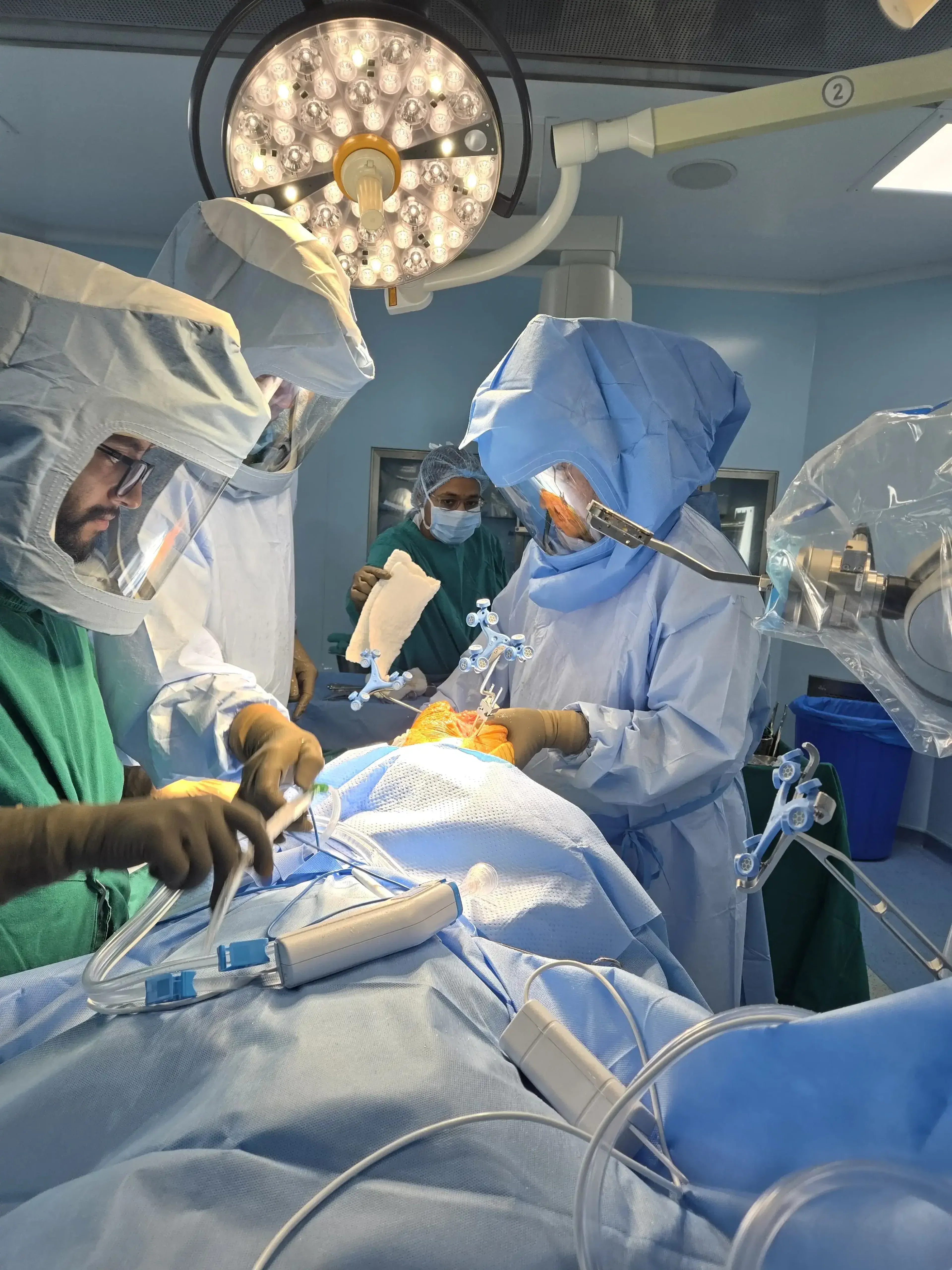11 August 2025
Knee Arthritis Treatment Options: From Home Care to Advanced Surgery
Explore evidence-based knee arthritis treatments in Mumbai: lifestyle changes, physiotherapy, braces, injections, and advanced options like robotic knee replacement with Dr. Abhijit Kale.

Knee arthritis doesn’t have a one-size-fits-all solution. The right treatment depends on your symptoms, activity goals, joint alignment, and imaging results. From home strategies to advanced robotic surgery, here’s a guide to options that actually make a difference.
First-Line Care You Can Start Today
Simple, consistent lifestyle changes often provide measurable pain relief:
- Weight management: Even a 5–10% weight loss can reduce knee load and pain significantly.
- Anti-inflammatory diet & hydration: Foods rich in omega-3s, antioxidants, and adequate fluids reduce joint stress.
- Targeted home exercises: Quad sets, heel slides, hamstring and calf stretches maintain mobility.
- Low-impact cardio: Cycling, swimming, elliptical training, or walking on level ground keeps joints active without overload.
- Heat & ice: Use heat before activity to loosen joints and ice after to control inflammation.
👉 See our Home Exercises and Physiotherapy programs for structured routines.
Expert-Guided Non-Surgical Care
If pain persists, guided therapies can help delay or even avoid surgery:
- Physiotherapy: Improves strength, balance, and gait while correcting compensatory movements.
- Bracing/Taping: Offloads the affected compartment and improves walking confidence.
- Medications: Short-term NSAIDs or analgesics, always under medical supervision.
- Injections:
- Corticosteroids for quick inflammation relief.
- Hyaluronic acid (viscosupplementation) to improve joint lubrication.
- PRP (Platelet-Rich Plasma) for regenerative support in early-to-moderate arthritis.
- Activity modification: Avoid deep squats, twisting, or pivoting sports during flare-ups.
When to Consider Surgery
Despite the best conservative care, some patients still experience severe disability. Surgery may be appropriate if:
- Daily function is limited after 6–12 weeks of optimized non-surgical treatment.
- Night pain or progressive deformity interferes with rest.
- Recurrent knee "giving way" compromises safety.
- X-rays or MRI show advanced cartilage loss or bone-on-bone arthritis.
Learn about the signs you need knee replacement to help determine if surgery is right for you.
Why Robotic Knee Replacement?
For patients with advanced arthritis, robotic-assisted knee replacement offers cutting-edge precision:
- Sub-millimetre bone cuts and personalized implant alignment
- Improved soft-tissue balance for a more natural-feeling joint
- Less early pain and faster functional recovery compared to traditional methods
👉 Learn more: Robotic Knee Replacement • Contact us for a consultation with Dr. Abhijit Kale in Mumbai.
FAQs
Can arthritis be reversed?
No, arthritis cannot be reversed. However, symptoms and function can improve dramatically with consistent exercise, weight control, and the right treatments.
Which injection works best for knee arthritis?
It depends on the stage and your goals. Steroids help with short-term relief, hyaluronic acid improves lubrication, and PRP supports long-term tissue healing. A specialist assessment determines the best choice.
How can I delay or avoid knee replacement surgery?
Focus on strengthening exercises, weight management, physiotherapy, and inflammation control. Early intervention often postpones or reduces the need for surgery.
Is robotic knee replacement safer than traditional replacement?
Both are safe, but robotics improves precision, reduces outliers, and may provide faster recovery and more natural joint function.
Takeaway: Knee arthritis management is a journey. Start with home care and physiotherapy, progress to expert-guided non-surgical treatments like joint injections, and consider robotic knee replacement if conservative methods fail. Learn about exercises to strengthen your knees and avoid surgery as a first step. With Dr. Abhijit Kale's expertise in Mumbai, you'll receive a treatment plan tailored to your stage, lifestyle, and long-term goals.

Need Expert Orthopaedic Care?
Consult Dr. Abhijit Kale, Mumbai's trusted expert in Robotic Joint Replacement & Spine Surgery. Get a personalized treatment plan today.